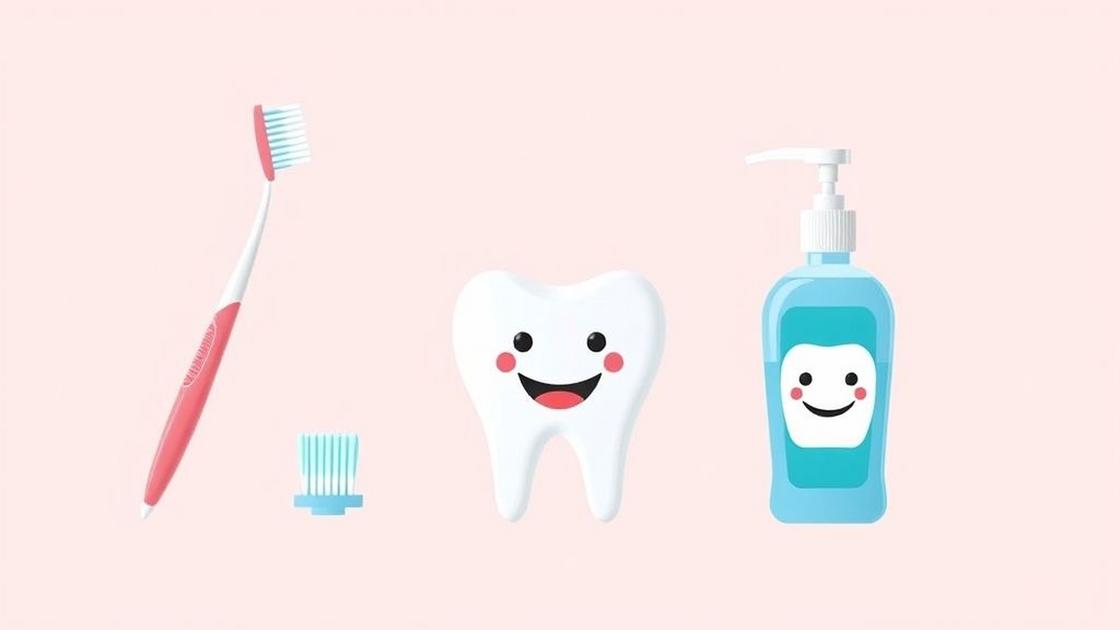Are you tired of the jolting pain when enjoying your favorite treats? Many women share your struggle with tooth sensitivity. This common issue can arise from various factors, like hormonal changes, diet, or even stress. Thankfully, there’s hope! In this article, we’ll dive into best home care for tooth sensitivity, offering practical solutions that will help you enjoy life without constant worry about your teeth.
Understanding Tooth Sensitivity and Its Causes
Tooth sensitivity is a common issue that many people face, often described as a sharp pain when consuming hot, cold, or sweet foods. Understanding its causes is the first step to finding relief. Sensitivity can happen due to a variety of reasons, such as:
- Worn Enamel: The protective layer of enamel can wear away due to aggressive brushing or acidic foods.
- Gum Recession: Gums may recede and expose tooth roots, which are more sensitive.
- Cracked Teeth: Fractures in teeth can lead to sensitivity when pressure or temperature changes occur.
- Dental Procedures: Recent treatments like fillings or cleanings can temporarily increase sensitivity.
- Teeth Grinding: This common habit can wear down enamel over time.
Recognizing these causes can help you address the issue and find the best solutions to manage tooth sensitivity.
Home Remedies You Can Try Today
Several simple home remedies may help alleviate tooth sensitivity. Consider trying the following:
- Warm Salt Water Rinse: Mix a teaspoon of salt in warm water and rinse your mouth. This can help soothe inflammation.
- Cold Compress: Applying a cold compress to the cheek can numb pain and reduce swelling.
- Clove Oil: Famous for its natural analgesic properties, applying diluted clove oil to the affected area can provide relief.
- Honey and Garlic Paste: This mix is known for its antibacterial properties. Applying it to sensitive areas can help combat pain.
- Herbal Teas: Chamomile and green tea have soothing properties that may help reduce inflammation in the gums.
Tips for Choosing the Right Toothpaste
Finding the right toothpaste is crucial for individuals battling tooth sensitivity. Here are some tips to keep in mind:
- Look for Desensitizing Toothpaste: These are specifically formulated to provide relief from sensitivity.
- Avoid Abrasive Ingredients: Toothpastes with baking soda or strong abrasives can worsen sensitivity.
- Fluoride Content: Choose toothpaste with fluoride to help strengthen enamel.
- Natural Options: If you prefer natural products, look for options that contain ingredients like potassium nitrate or strontium chloride.
- ADA Seal of Acceptance: Check if the toothpaste has been approved by the American Dental Association, ensuring it’s a safe choice.
How to Modify Your Diet for Better Oral Health
Your diet can significantly impact oral health and sensitivity. Consider these dietary changes:
- Reduce Sugar Intake: Sugary foods can lead to enamel erosion and increase sensitivity.
- Incorporate Dairy: Foods rich in calcium, like yogurt and cheese, help strengthen teeth.
- Eat Fruits and Vegetables: Crunchy fruits and vegetables can naturally clean teeth and promote oral health.
- Stay Hydrated: Drinking water can help wash away food particles and bacteria.
- Avoid Acidic Foods: Limit your intake of citrus fruits, vinegar, and soda, which can wear down enamel.
The Benefits of Using a Soft-Bristled Toothbrush
Switching to a soft-bristled toothbrush can be a game-changer for people with sensitive teeth. Here’s why:
- Gentle on Gums: Soft bristles are less likely to cause gum irritation, reducing sensitivity.
- Effective Cleaning: A soft brush can still clean effectively without the harsh scrubbing that can damage enamel.
- Comfort During Brushing: Many report that soft-bristled brushes provide a more comfortable brushing experience.
- Encourages Longer Brushing: Users may be more likely to brush longer with a softer toothbrush as they don’t experience discomfort.
- Recommended by Dentists: Most dentists recommend soft brushes as a preferable choice.
Natural Solutions for Soothing Sensitivity
In addition to home remedies, several natural solutions can help soothe sensitive teeth:
- Essential Oils: Oils like peppermint, eucalyptus, or tea tree can help relieve pain and reduce inflammation.
- Turmeric Paste: Known for its anti-inflammatory properties, mixing turmeric with coconut oil can create a soothing paste for sensitive areas.
- Rice Water Rinse: The leftover water from cooking rice may help strengthen gums and reduce sensitivity.
- Oatmeal Mask: Applying a mixture of oatmeal and water to the gums can provide relief and is gentle on sensitive areas.
- Aloe Vera Gel: Applying aloe vera can help soothe and heal sensitive gums.
The Importance of Regular Dental Check-ups
Visiting the dentist regularly is vital for maintaining good oral health. Reasons to keep up with dental check-ups include:
- Early Detection: Regular visits allow for early detection of issues, preventing them from escalating.
- Professional Cleaning: Dentists provide cleanings that remove plaque and tartar, which can cause sensitivity.
- Custom Recommendations: Your dentist can offer personalized advice and products to manage sensitivity.
- Overall Oral Health: Regular check-ups contribute to your overall health and well-being, catching issues before they impact you.
- Support for Anxiety: For those anxious about dental visits, having a supportive dentist can ease fears and improve your experience.
Techniques to Reduce Teeth Grinding Stress
Teeth grinding, often caused by stress, can lead to increased sensitivity. Here are some techniques to reduce it:
- Stress Management: Engage in activities like yoga or meditation to help manage daily stress levels.
- Mouth Guards: Consider wearing a mouth guard at night to protect teeth from grinding.
- Relaxation Techniques: Deep breathing, guided imagery, or gentle stretches can help relax jaw muscles.
- Limit Caffeine: Reducing caffeine intake may decrease anxiety and the urge to grind your teeth.
- Physical Activity: Regular exercise helps reduce stress and tension throughout the body.
Connecting Oral Health to Overall Well-being
There is a significant connection between oral health and overall well-being. Understanding this link can motivate you to prioritize dental care:
- Link to Other Health Issues: Poor oral health can lead to systemic conditions such as heart disease and diabetes.
- Mood and Self-Esteem: Maintaining healthy teeth can improve your appearance, boosting your confidence and mood.
- Nutrition Impacts: Good oral health allows for better nutrition as it enables you to eat a varied diet.
- Sleep Quality: Reducing dental pain can lead to better sleep and overall mental health.
- Overall Quality of Life: Healthy teeth and gums contribute to a better life experience.
Empowering Yourself on Your Oral Health Journey
Taking control of your oral health journey is empowering. Here are some steps to help you:
- Educate Yourself: Understanding tooth sensitivity and oral health can motivate better choices.
- Set Goals: Whether it’s switching to a soft brush or improving your diet, set achievable health goals.
- Be Proactive: Don’t wait for a problem to arise; make dental visits a regular part of your health care.
- Connect with Others: Sharing your journey with friends or family can provide support and encouragement.
- Stay Best-Informed: Keep up with the latest research and innovations in dental care.






